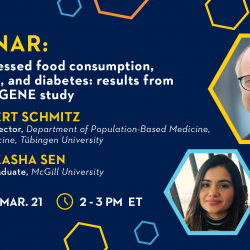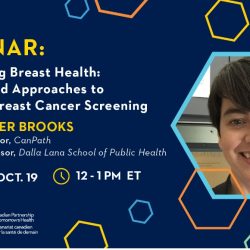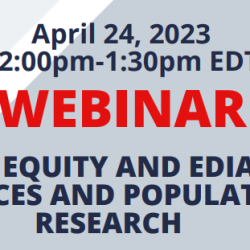Upcoming CanPath Webinar on Ultra-processed food consumption, depression, and diabetes
Type 2 diabetes (T2D) is a widespread chronic condition with severe consequences, including complications affecting blood vessels and organs, disability, and premature death. Research indicates that depression can significantly raise the risk of developing T2D, potentially through lifestyle and biological factors. Additionally, our modern diet presents a challenge with the increasing consumption of ultra-processed foods (UPF), which have been linked to a higher risk of obesity, diabetes, and hypertension. In this webinar, Dr. Norbert Schmitz and Dr. Akankasha Sen will share the synergistic effects of depression and UPF consumption on T2D risk and the risk of developing diabetes-specific complications for those with type 2 diabetes. Using longitudinal data from the CARTaGENE cohort, Dr. Schmitz and colleagues demonstrate whether the combination of these factors exacerbates the likelihood of developing T2D beyond their individual effects and whether other mechanisms affect the association, like smoking, alcohol consumption, and physical activity. Additional Details and Registration: https://canpath.ca/2024/03/webinar-ultra-processed-food-consumption-depression-diabetes/







